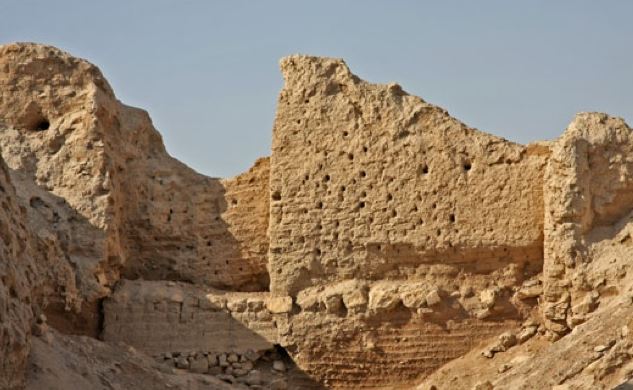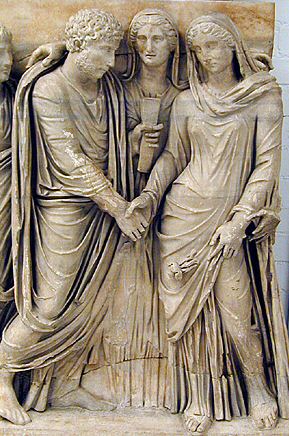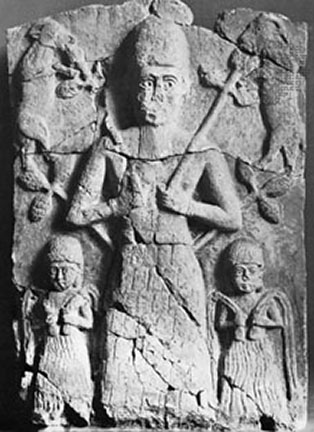Someone asked a question about whether or not Yom Teruah, the Biblical festival commanded to be celebrated on the first day of the seventh month, in the fall, could have been the date of the fall of Jericho based on the blowing of trumpets at each. Although it is tempting to tie the two together, the Scriptures are incredibly explicit about the timing of the events immediately before the fall of Jericho:
Deuteronomy 1:3 states very clearly that Moses’s speech (which makes up the overwhelming bulk of Deuteronomy) takes place on the first day of the eleventh month–therefore probably sometime in what we would call February.
Deuteronomy 34 Moses is called to the top of Mt Nebo where he dies, Israel mourns for 30 days (verse 8)
Joshua 1:2 God tells Joshua to take the people into the Promised Land
Joshua 2:6 Rahab hides the two spies sent across the Jordan River by Joshua under flax that is drying on her roof. Flax is harvested in the 12th month so this timing lines up perfectly with the death of Moses having been roughly a month earlier.
Joshua 2:15 The spies wait for three days in the hills before returning to the camp.
Joshua 5:10 After crossing over the Jordan and circumcising all the men, they celebrated the Passover on the fourteenth day of the first month.
Joshua 5:13 Immediately after celebrating the Passover week (which ended seven days later), and eating of the barley harvest in the Land, Joshua meets the Angel of the Lord outside of Jericho.
Joshua 6 Fall of Jericho seven days later, no later than the first week of the second month.
Joshua 8:30 Joshua renews the Covenant at Mt Ebal/Mt Gerazim, probably around Shavuot in the third month.
I know that many people want to have fun with events and link everything up like a big puzzle, but the truth is that the Bible does a pretty amazing job at being very specific about the timing of certain events. The initial conquest of ancient Israel is one of those circumstances. But there is zero need to overspiritualize everything–and when it comes to ignoring direct Scriptural evidence through the naming of dates, feasts, and agricultural harvests, it can get very dangerous. In this case, we have all three. We know when Deuteronomy happened. We know when Moses died. We know how long Israel mourned. We know when the flax was harvested and that it wouldn’t be left out to dry for six months. We know that after the encounter with Rahab, the people crossed the Jordan and celebrated the Passover. As someone once said, these are fixed points in time. No differences in calendars are going to budge them more than a month in either direction–and certainly not six months into the future. No, we know that the conquest of Jericho took place in the spring, right after the Passover, and that Yom Teruah, the day celebrated by the blowing of trumpets, was still five months away in the fall. We can’t ignore the Word just because an idea sounds cool. Jericho is more associated with timing of the crossing of the Red Sea, and not with the first of the Fall Festivals.
Shofar (animal horns) were blown often in Scripture–very notably by Gideon when he and his 300 comrades destroyed the Philistine armies. As he was threshing wheat in a winepress in order to hide it from the Philistines, we know that this battle was at the time of Shavuot/Pentecost in the third month–also not in the seventh month just because “trumpets” were blown.
So be careful when getting creative unless you are rock solid in knowing the basics of Scripture inside and out. We can’t float theories that go against established timelines or we will find ourselves at odds with the Word. Our imaginations will forever be coming up with wild scenarios, and so we have to search the Scriptures diligently before we take those theories public. This is God’s word, not a toy, not a plaything. We have to treat it with at least as much respect as we would our own reputations, and if we wouldn’t want people speculating about our lives without careful and cautious and loving investigation–well, we dare not treat the Word of God with any less respect.





















